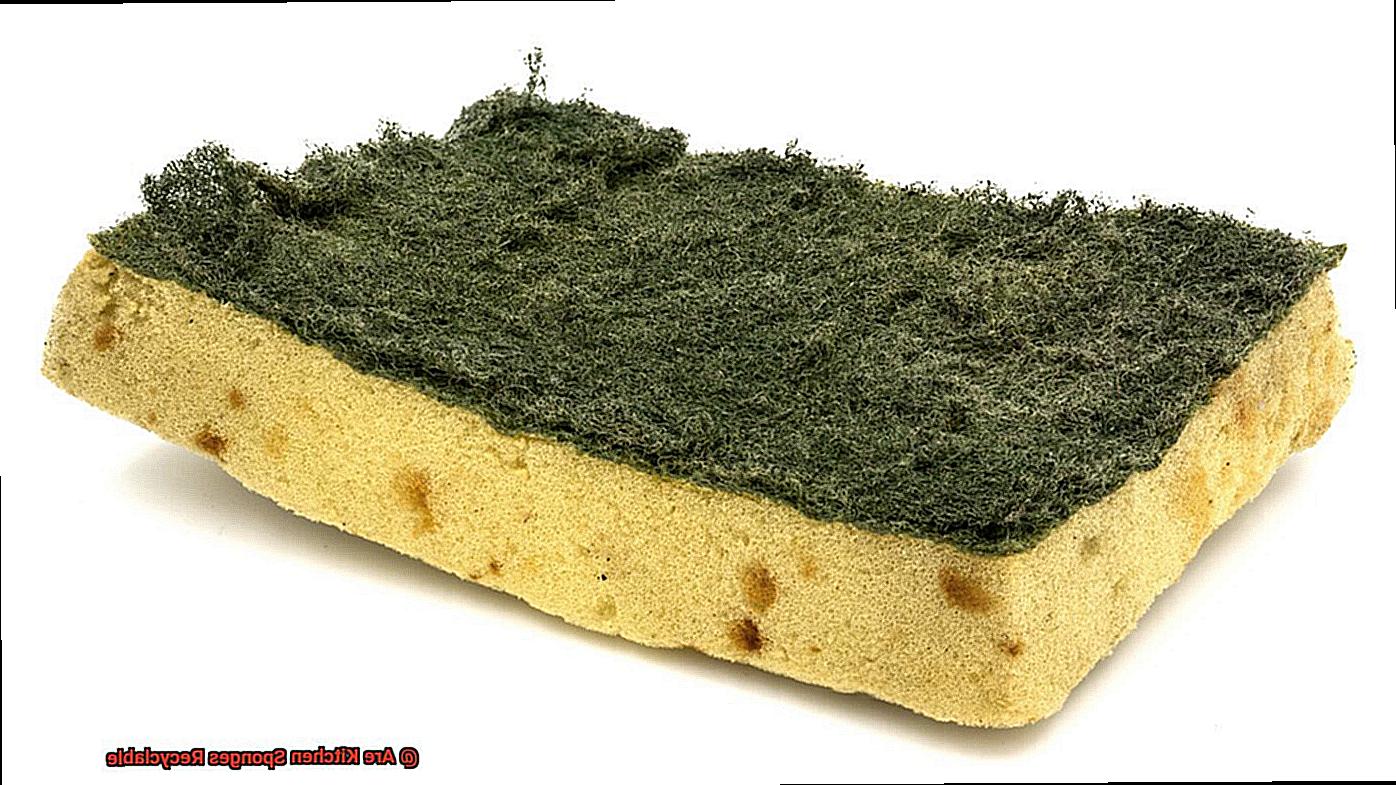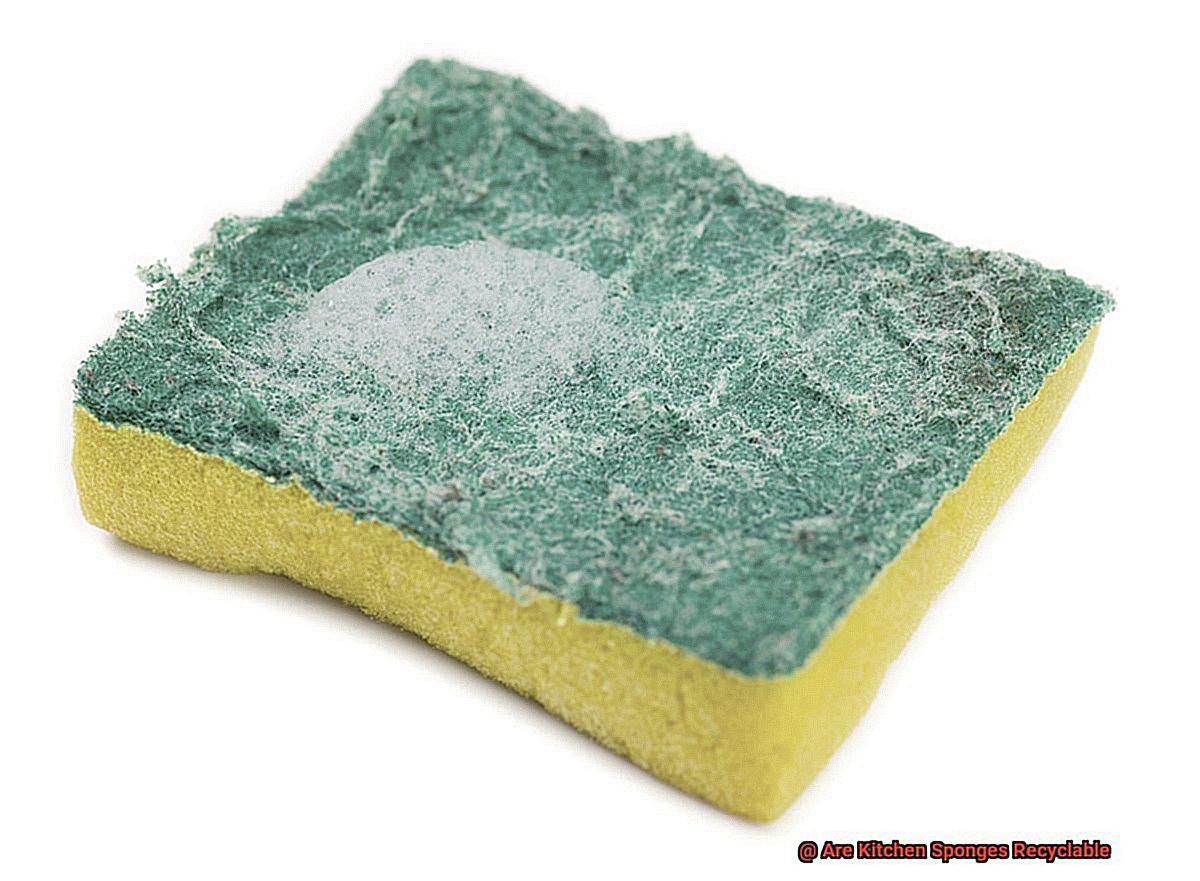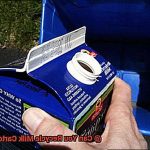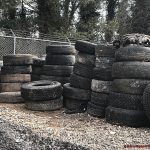Are kitchen sponges recyclable? This is a question on many people’s minds, especially those concerned about their environmental impact. With so much plastic waste being produced daily, it’s important to know what can be recycled.
Good news: Kitchen sponges can be reused. But there are some things you should know before throwing them in the recycling bin. In this post, we’ll explore the ins and outs of recycling kitchen sponges, including how to properly dispose of them and what types of materials they can be made from. We’ll also discuss why recycling these items is so critical for the environment.
So if you’ve ever asked yourself “are kitchen sponges recyclable?”, you’ve come to the right place. Read on to find out what you need to know about recycling kitchen sponges and how you can help minimize your garbage.
What is a Kitchen Sponge?
Contents
- 1 What is a Kitchen Sponge?
- 2 Are Kitchen Sponges Recyclable?
- 3 What Materials are Kitchen Sponges Made Of?
- 4 Why Can’t Kitchen Sponges Be Recycled?
- 5 What Should You Do With Old Kitchen Sponges?
- 6 Are Foam Sponges Recyclable?
- 7 How to Dispose of Kitchen Sponges Properly
- 8 Alternatives to Disposing of Kitchen Sponges in the Landfill
- 9 Conclusion
Kitchen sponges are essential for any kitchen. They help us to clean dishes, countertops, and other surfaces quickly and effectively. But what is a kitchen sponge?
A kitchen sponge is typically made from foam or cellulose and has an abrasive surface on one side to scrub away food particles and stains. Different types of sponges are available in the market, including synthetic sponges such as Scotch-Brite, natural sponges made from sea animals like sea sponges, and cellulose sponges made from wood pulp.
Kitchen sponges come in various shapes and sizes, but they usually have a rectangular or round shape with a flat surface on one side and an abrasive surface on the other. The flat surface is used for wiping and cleaning, while the abrasive surface is used for scrubbing away tough stains.
Think of your kitchen sponge as your trusty ally in the kitchen; it’s always there when you need it. It’s important to remember that although kitchen sponges are essential for sanitizing, old ones should be disposed of properly since they can harbor bacteria if not adequately sanitized or thrown away correctly.
Are Kitchen Sponges Recyclable?
Unfortunately, the answer is no. Kitchen sponges are usually made from a blend of plastic polymers and cellulose, which makes them impossible to recycle. Even if you can find a recycling center that accepts mixed plastic, kitchen sponges are unlikely to be accepted due to the risk of contamination from food particles and bacteria.
The most eco-friendly option is to throw them away after squeezing out as much water as possible and allowing them to dry completely. This will help minimize the amount of landfill space they take up. Foam sponges are also not recyclable since they are made of polyurethane foam, which can only be recycled in small amounts.
To ensure you’re being environmentally friendly, try compostable sponges or reusable, washable sponges made from natural materials such as loofah or cotton.
What Materials are Kitchen Sponges Made Of?
When shopping for kitchen sponges, you may be overwhelmed by the sheer number of options. But have you ever stopped to consider what materials these sponges are made from? The materials used to make kitchen sponges can have a major impact on their recyclability and environmental footprint.

Cellulose sponges are the most eco-friendly option, as they are typically made from wood pulp, cotton fibers, or other plant-based materials and are biodegradable and compostable. However, some cellulose sponges may be coated with synthetic materials or infused with chemicals that reduce their environmental friendliness.
Foam sponges are usually made from polyurethane or polyester foam, but even when they are made from recycled materials, they still end up in landfills where they take up space and pollute the atmosphere. Plastic sponges produced by Scotch-Brite are also not biodegradable and can take hundreds of years to decompose in landfills.
To minimize your kitchen sponge’s environmental impact, it is important to choose one made from renewable materials and dispose of it properly when it is worn out.
Why Can’t Kitchen Sponges Be Recycled?
Kitchen sponges may seem like small and insignificant items, but they cannot be recycled due to a few factors.
Firstly, the materials used to make kitchen sponges are usually a combination of plastic polymers and cellulose, which are difficult to separate and recycle.
Secondly, kitchen sponges are often contaminated with food particles and bacteria which can put workers at risk when processing them. Lastly, kitchen sponges are often too small for recycling facilities to process efficiently.
The best way to dispose of old kitchen sponges is in the trash after squeezing out as much water as possible and letting them dry completely. This will help reduce the amount of space they take up in landfills and prevent contamination from food particles and bacteria.
If you’re looking for an eco-friendly alternative to traditional sponges, consider compostable cellulose or reusable cloth sponges. Both options can help reduce waste and have a lower impact on the environment than traditional kitchen sponges.
What Should You Do With Old Kitchen Sponges?
There are plenty of eco-friendly options to choose from.
If your sponge is still in good condition, consider sanitizing it by microwaving it for one to two minutes or running it through the dishwasher. After that, you can repurpose it to clean other areas in your home such as bathroom tiles or the refrigerator. Or, you can donate gently used sponges to local animal shelters, since they can be used to wash pet dishes.
If your sponge is beyond repair, look for programs and organizations that accept old sponges for recycling. For instance, cellulose sponges made of plant-based materials can be composted or recycled with yard waste.
However, foam sponges like those used for packing are not typically recyclable. Fortunately, some recycling schemes exist that transform used sponges into useful items such as park benches and watering cans.
Are Foam Sponges Recyclable?
Foam sponges are a common household item, used for cleaning and scrubbing all sorts of surfaces. But when it comes to disposing of them, many people wonder if foam sponges are recyclable.
Unfortunately, the answer is no. Foam sponges are made from polyurethane foam, a type of plastic that is not accepted by curbside recycling programs. Plus, they are not biodegradable or compostable, making them difficult to break down.
However, some companies have taken on the challenge of recycling foam sponges and turning them into new products such as carpet padding or insulation materials. If you want to recycle your old foam sponges, you may need to pay a fee and find a specialized recycling company in your area.
Alternatively, you can donate slightly used foam sponges to animal shelters where they can be used for cleaning and grooming pets. This way you can still give your old sponge a second life while helping out animals in need.
How to Dispose of Kitchen Sponges Properly
Kitchen sponges are a common household item used for cleaning and scrubbing surfaces. However, they can have a significant environmental impact.
Synthetic sponges like Scotch-Brite and foam sponges made from polyurethane or polyester foam are not biodegradable and can take hundreds of years to decompose in landfills.
When these sponges end up in landfills, they take up space and pollute the atmosphere.
Proper Disposal of Old Kitchen Sponges
The best way to dispose of old kitchen sponges is in the trash after squeezing out as much water as possible and letting them dry completely.
This will help reduce the amount of space they take up in landfills and prevent contamination from food particles and bacteria. If you’re looking for an eco-friendly alternative to traditional sponges, consider compostable cellulose or reusable cloth sponges. Both options can help reduce waste and have a lower impact on the environment than traditional kitchen sponges.
Repurposing Old Kitchen Sponges
If your sponge is still in good condition, consider sanitizing it by microwaving it for one to two minutes or running it through the dishwasher.
After that, you can repurpose it to clean other areas in your home such as bathroom tiles or the refrigerator. Or, you can donate gently used sponges to local animal shelters since they can be used to wash pet dishes.
Recycling Old Kitchen Sponges
Some recycling schemes exist that transform used sponges into useful items such as park benches and watering cans.
However, foam sponges like those used for packing are not typically recyclable. Fortunately, some companies have taken on the challenge of recycling foam sponges and turning them into new products such as carpet padding or insulation materials.
If you want to recycle your old foam sponges, you may need to pay a fee and find a specialized recycling company in your area. Alternatively, you can donate slightly used foam sponges to animal shelters where they can be used for cleaning and grooming pets.
R7N5a476DKQ” >
Alternatives to Disposing of Kitchen Sponges in the Landfill
When it comes to disposing of kitchen sponges, throwing them in a landfill should be a last resort. Several alternatives can be considered to reduce waste and environmental impact.
One option is to recycle sponges through TerraCycle’s Scotch-Brite Recycling Program. This program accepts all brands of used sponges, including cellulose, foam, and scotch-brite varieties. The sponges are then shredded and transformed into plastic pellets that can be used to create new products such as outdoor furniture, decking, or even playground equipment.
Another alternative is to compost cellulose sponges if you have them – these are biodegradable and can be added to a compost bin where they will decompose naturally. However, synthetic sponges like foam or scotch-brite should not be added to a compost bin.
For packing sponges, reuse them for future shipments or donate them to local packing and shipping stores that can use them for their purposes.
It’s also important to note that one way to reduce the need for frequent sponge replacements is by properly cleaning and sanitizing them after each use – this can be done by soaking them in a bleach solution or microwaving them for a few seconds to kill bacteria.
Also Read: Are Sponges Biodegradable? These 10 Eco-Friendly Ones Are!
Conclusion
In recent years, it’s become increasingly important to know whether kitchen sponges are recyclable or not. Unfortunately, the answer is no – they are not recyclable due to their small size, a mixture of plastic polymers and cellulose, and contamination from food particles and bacteria.
Fortunately, there are eco-friendly alternatives that can help minimize waste and have a less harmful effect on the climate. Compostable cellulose sponges or reusable cloth sponges made from natural materials such as loofah or cotton are popular choices for those looking for an environmentally conscious option.
When disposing of old kitchen sponges, it’s important to take steps to reduce their environmental impact by squeezing out water before throwing them away and allowing them to completely dry.
Foam sponges can also be donated to animal shelters where they can be used for washing and grooming horses. Additionally, some companies have taken on the challenge of recycling foam sponges into new products like carpet padding or insulation materials.
Kitchen sponges may seem like small items but they can have a major effect on our climate if not treated properly.





